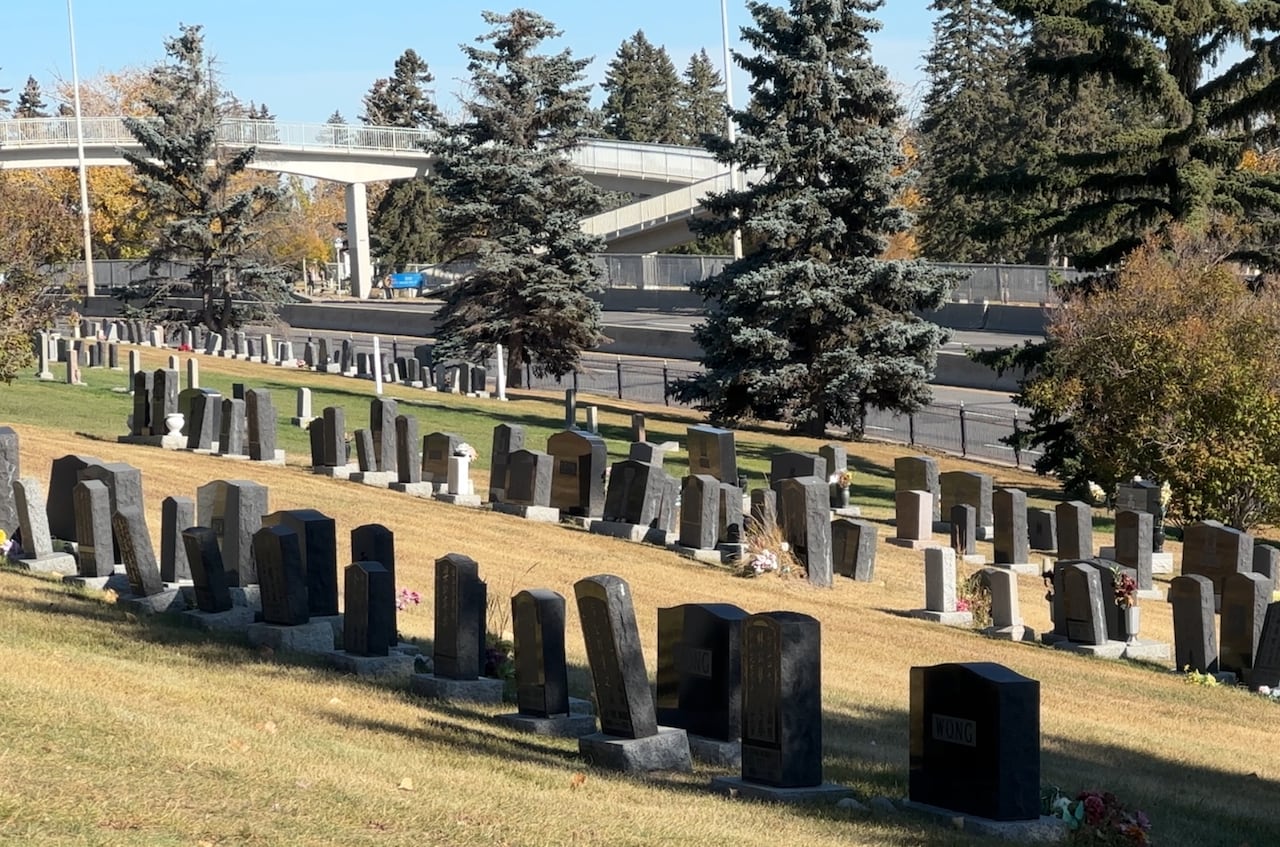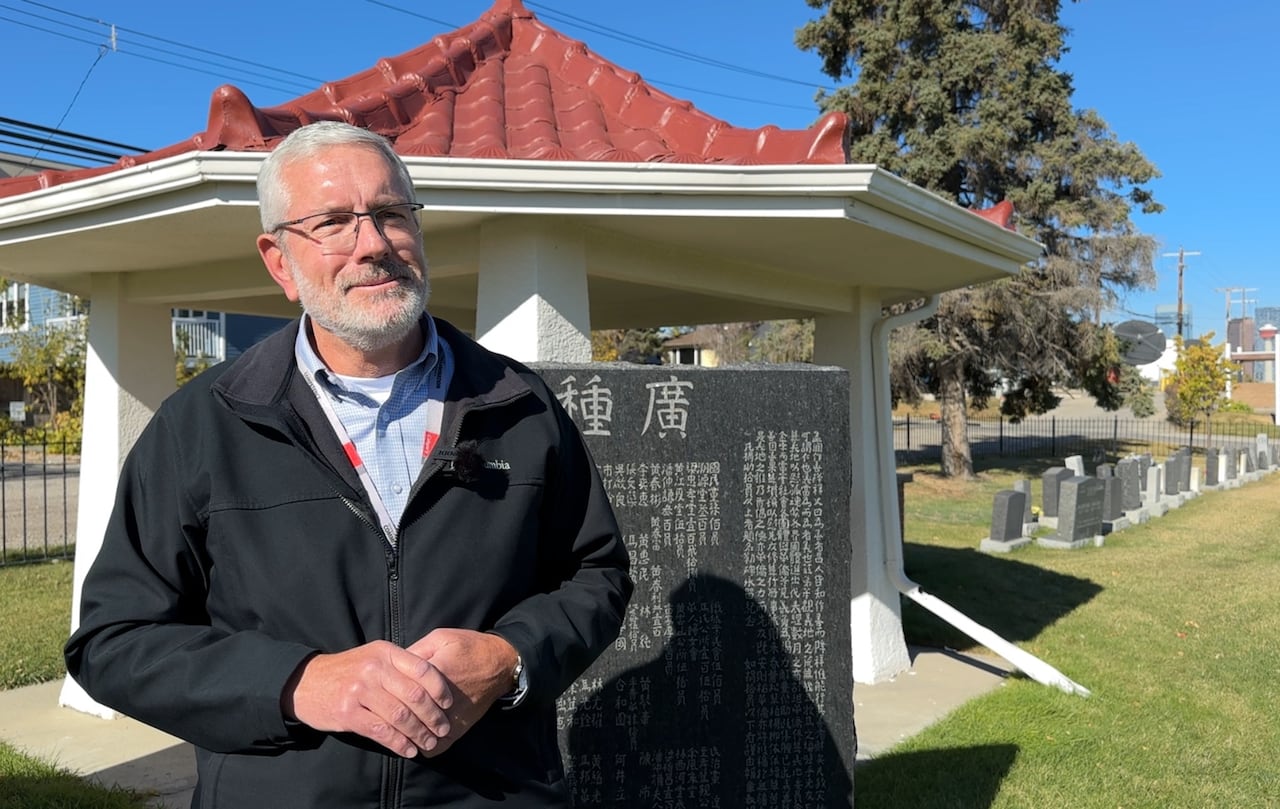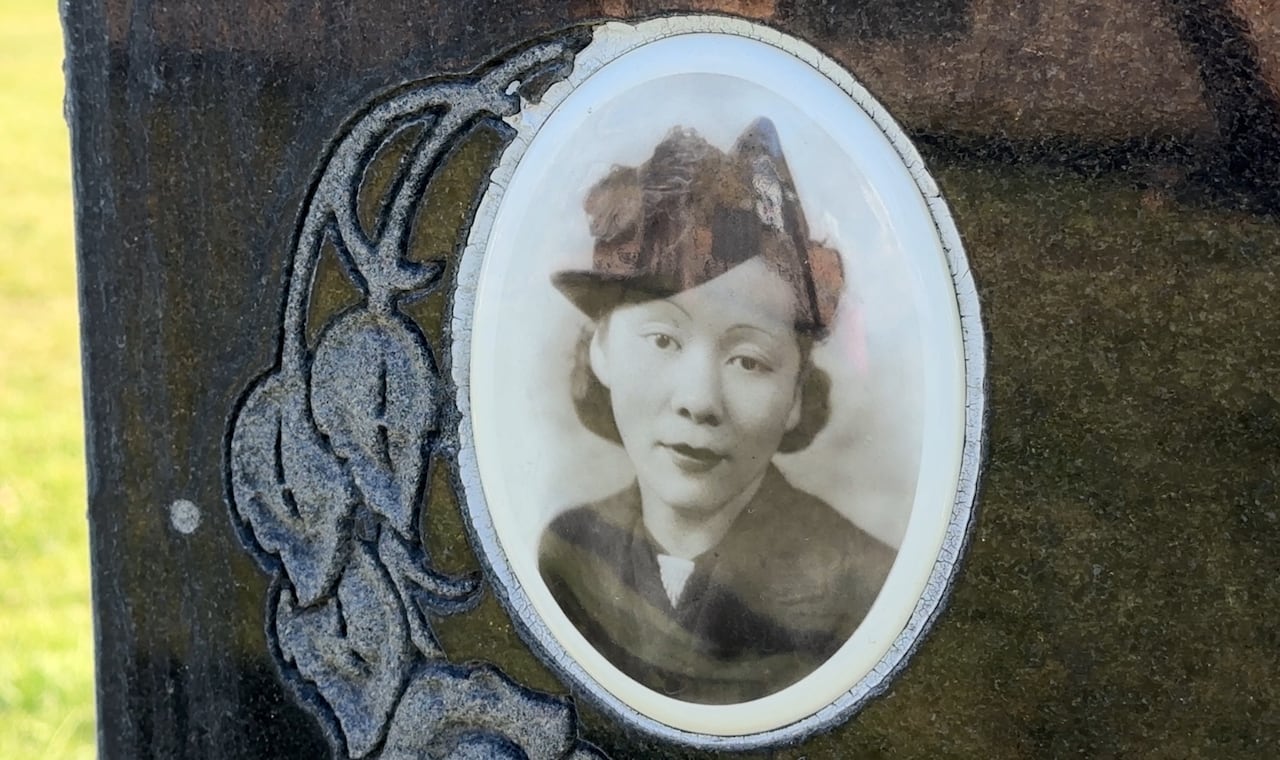Jack Yee visits the Chinese Cemetery in Calgary’s southwest neigbourhood of Erlton a few times a year to pay respect to his parents, who are buried there along with some of the city’s earliest Chinese immigrants, who arrived in the late 1800s and early 1900s.
Established in 1908, the cemetery is one of the city’s oldest cultural burial grounds, according to the City of Calgary.
Over the years, many of the original headstones have fallen into disrepair, slumping over because of their placement or the shifting ground.
“The Chinese people value their cemetery because that’s our ancestors and our loved ones before us,” Yee said. “We appreciate their effort and we try to build on their success to make it better for our community.”
As the president and CEO of the Calgary Chinatown Development Foundation, Yee became involved with the City of Calgary’s efforts to restore and revitalize the historic cemetery.
Early in the process, a feng shui master was brought in from Vancouver to assess the cemetery grounds, according to Yee, after which it was determined that the site should be revitalized.

Over the past two summers, the city and hundreds of volunteers from the local Chinese community have protected 343 historic grave-sites and restored 177 monuments, resetting them on reinforced soil foundations.
Gary Daudlin, cemeteries management lead with the City of Calgary, said revitalizing the cemetery is to “show respect to the individuals that were buried here, and ensure that the next generations can come and see those particular graves and be able to understand those contributions of those individuals to our community.”

The restoration involved carefully removing and epoxying the monuments to stabilize cracks.
Community translators helped identify inscriptions and ensured that the stones were returned to the correct locations.
Volunteers from Calgary’s Chinese community played a key role in the cemetery revitalization, cleaning monuments and restoring turf by loaming, seeding, fertilizing and watering.
“We were getting interest from the whole community and they wanted to be involved,” Daudlin said. “And that made this project work.”

A commemorative monument brought in from China was also erected, celebrating the work that has been completed in the cemetery.
Honouring Calgary’s Chinese history
The city said the Erlton Chinese Cemetery “became a dedicated place of remembrance and community” at a time when Chinese residents were excluded from other cemeteries.
Chinese immigrants arrived in the city as early as the 1880s, developing three Chinatown locations in the years that followed.
In 1885, the federal government implemented a head tax of $50 on any Chinese person looking to enter Canada. It was raised to $100 in 1900 and then again to $500 in 1903, in an attempt to deter Chinese immigrants from settling in the country.
Graves in Calgary’s Chinese Cemetery have been repaired and restored over the past two summers in a partnership between the city and hundreds of community members. The cemetery is the final resting spot of Chinese immigrants who came to Calgary in the late 1800s and early 1900s.
The discriminatory policy placed a significant burden on Chinese settlers, whose average annual wage was $300 at the time, with only about $43 remaining after living expenses, according to the city.
Despite that hurdle and many others that followed, Calgary’s Chinese community grew, becoming an integral part of the city’s development.
“The revitalization of the Erlton Chinese Cemetery is an act of remembrance and respect,” said Ward 7 incumbent councillor Terry Wong in a city press release.
“By honouring Calgary’s early Chinese pioneers, we recognize their struggles and contributions while preserving a vital piece of our heritage and strengthening bonds with the Chinese community for generations to come.”







